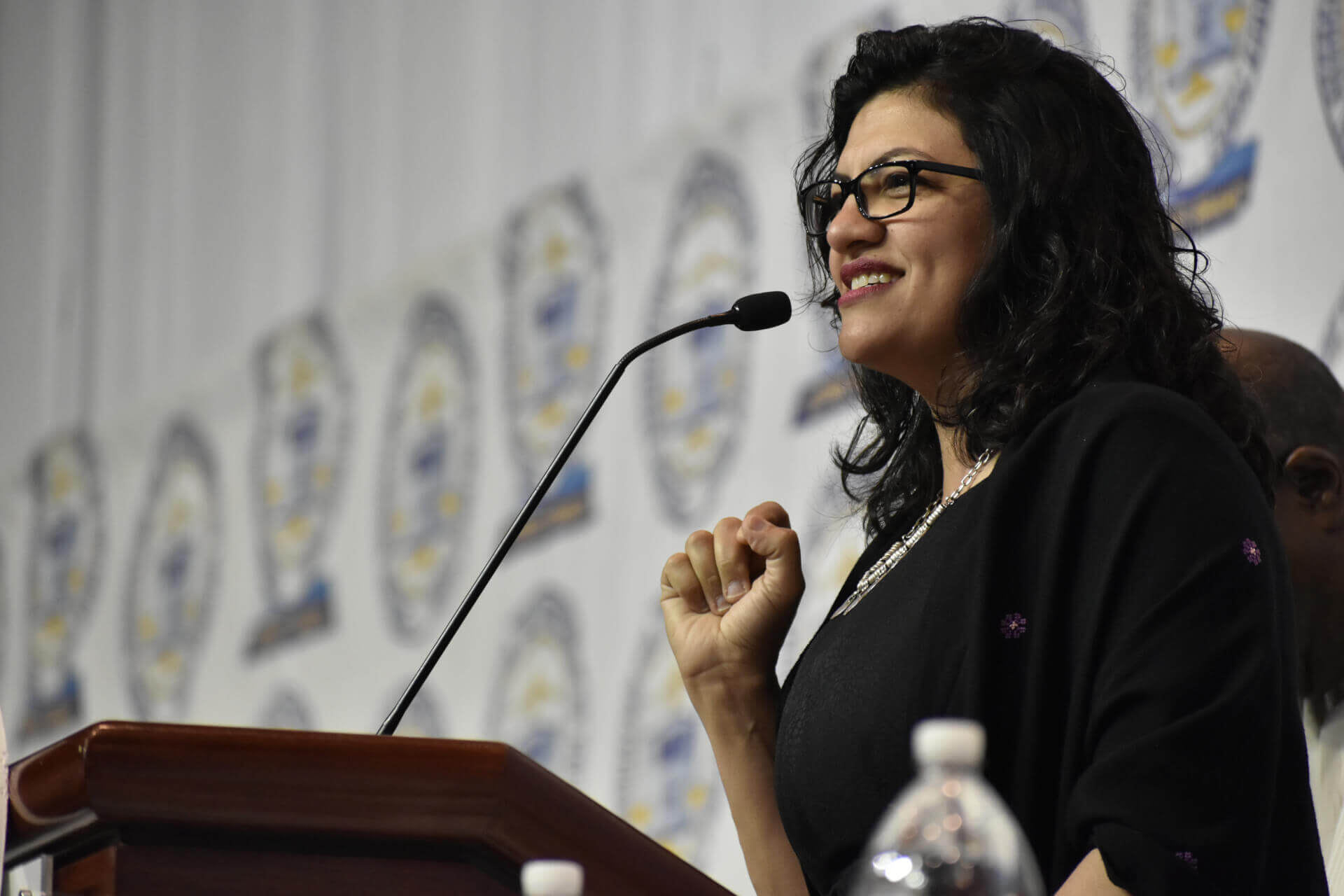Could Elections to Replace Cummings Produce Two Different Winners?

The special election to fill the remainder of the late-Rep. Elijah E. Cummings’ (D-Md.) congressional term is being held over the same period as the 2020 Maryland presidential primary — creating the real if long-shot possibility that different winners could emerge from the special and regular elections.
The special primary election in the 7th District — one of Maryland’s biggest Democratic strongholds — is Feb. 4. The winners of the Democratic and Republican primaries will advance to the special 7th District general election on April 28 — the same day as the 2020 presidential primary in Maryland.
The winner of the special election will serve in Congress through the end of 2020, but nothing is guaranteed beyond that.
The chances of the seat going to anyone other than a Democrat are unimaginable; the seat has been in Democratic hands since it was reinstated following the 1950 Census.
District 7 takes in portions of Baltimore City and Baltimore and Howard counties. There are 24 Democrats filed in the special election and 21 in the 2020 presidential election. Nearly half of District 7 registered voters are from Baltimore City, as are nearly half of the candidates in the race.
Many political insiders believe the winner of the Democratic special primary election will glide to victory in the regular primary election. But others aren’t so sure.
“It’s a very real possibility that the winner of the special [primary] election will not be the winner of the regular primary,” one the candidates, Del. Terri L. Hill (D-Howard), said in a phone interview. “We’re talking about very different voter bases. Voters who will vote on a cold February day may not be the same who will come out in April with warmer weather and a full ballot of candidates, including presidents.”
The two-and-a-half month gap between the two races could create a small window of opportunity for a candidate who finishes close behind the February primary winner. There will be time for key supporters of runners-up to get behind someone other than the winner, if they are so inclined. And a female candidate may also have an advantage if a man wins the special primary.
Maryland’s delegation has been all-male for the past two sessions of Congress.
The February special primary election is expected to have a significantly lower turnout than the presidential primary in April. The weather will be warmer in April, and there is no early voting for the February special election, meaning bad weather that day could impede turnout considerably.
While there’s no telling if the Democratic presidential primary fight will have been settled by the time the Maryland primary rolls around, Democratic voters are primed to vote against President Trump in November, and that may boost turnout in the April primary. What’s more, elections in Baltimore City are also taking place on April 28, and that could also stoke voter interest.
Several of the candidates interviewed for this article said if they lose the special primary election next month they will make a decision then on whether to continue their campaigns, while others have vowed to remain in the race no matter what. The vast majority of candidates have already filed to compete in both races.
Former Maryland Democratic chairwoman Maya Rockeymoore Cummings, the late congressman’s widow, said she is intent on staying in the race if she loses in the February primary election. On Thursday, Cummings picked up the endorsement of Emily’s List, which should provide a financial boost.
“I’m in the fight for Baltimore families, today, tomorrow, Feb. 4 and beyond,” Rockeymoore Cummings said in a statement provided to Maryland Matters. “I’m running hard for the win on Feb. 4 and April 28 both. I’m working hard to win both!”
But State House Majority Whip Talmadge Branch (D-Baltimore City) took a different view.
“I haven’t thought past that,” he said. “I’m just going to do what’s necessary in the special election and see where that takes me.”
State Sen. Jill P. Carter (D-Baltimore City), another candidate in the race, said she believes it will be hard for someone who loses in February to bounce back in April, but she thinks it’s possible.
“Those that come close will likely stay in it,” Carter said. “And then it’s going to come down to who has the best field operation, the best campaign team and money for enough media. I guess it’s a possibility, but I don’t see it as a probability.”
On Saturday, Carter was endorsed by former NAACP president and 2018 Democratic gubernatorial nominee Benjamin T. Jealous, who picked up over 1 million votes in his losing bid against Gov. Lawrence J. Hogan Jr. (R) in the general election.
Jealous’ endorsement could resonate, because another candidate in the congressional race is former Rep. Kweisi Mfume (D), a predecessor of Jealous’ at the NAACP.
One seat, two winners
Having two people win a congressional seat in separate races in close proximity is not unheard of.
In 2018, two different winners emerged from a special primary and general election and the regular primary and general elections in Michigan’s 13th congressional district, where veteran Rep. John Conyers Jr. (D) had resigned amid sexual harassment allegations.
Detroit City Councilwoman Brenda Jones defeated former state Rep. Rashida Tlaib in the special Democratic primary election in August, which was held on the same day as the regular primary election, by about 1,600 votes. But Tlaib beat Jones in the regular primary election by 900 votes.
Jones went on to win the general election to fill the remaining two months of Conyers’ term on the same day Tlaib won the general election for a full term. Jones sought and was granted special dispensation from both Detroit city officials and U.S. House ethics officials to serve in both jobs simultaneously; she remains a member of the city council while Tlaib has taken her place in Congress.
In 2006, when then-U.S. House Majority Leader Tom DeLay (R-Texas) resigned following an indictment on criminal conspiracy charges for violating state election laws, a Houston city councilwoman named Shelly Sekula-Gibbs (R) won the special election to fill the final two months of DeLay’s term. But on the same day, she lost the regular election for a full term to former U.S. Rep. Nick Lampson, a Democrat.
In her general election race against Lampson, Sekula-Gibbs was required to run a write-in candidate under state law because DeLay had already won the Republican primary election before resigning from Congress. She nevertheless served in Congress for two months.
Kyle Kondik, managing editor of Sabato’s Crystal Ball, which handicaps political races across the country, said he thinks the time gap between the special primary and the regular primary in Maryland will deter donors from supporting losing candidates in the second race.
“Primaries are notoriously hard to handicap, and the electorates for the special primary and the regular primary will be a lot different. There will be much higher turnout, in all likelihood, for the latter race,” Kondik said. “Another factor is how hard the defeated candidates in the initial vote keep fighting in the next primary. There’s a decent amount of time between the two races, which means that the losing candidates might see their money and support dry up in between the two contests.
“One would expect the same person to win both races but it’s hard to say for sure,” Kondik said.
Although Rockeymoore Cummings may benefit from her association with the late congressman, Mfume, the former District 7 representative whom Elijah Cummings replaced in a 1996 special election, is seen by some political insiders as the favorite to win the race. He has strong name recognition following his decade in Congress and NAACP tenure, and a built-in base in Baltimore City from his years as a city councilman.
A long time Democratic leader in Maryland who asked not to be identified said he would be shocked if Mfume didn’t win.
“I don’t know anybody in the establishment that does not think Mfume will not win,” he said.
Glynis Kazanjian is a freelance writer. She can be reached at [email protected].



 Creative Commons Attribution
Creative Commons Attribution